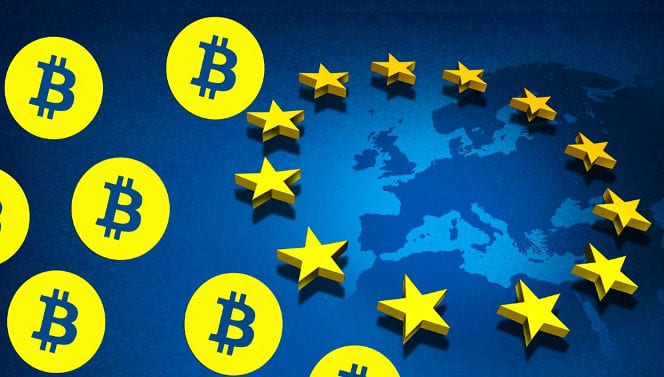Bitcoin has continued rising explosively with eyes set on the Moon and other celestial objects. If the current pace continues we are likely to see new records before the end of the year. Bitcoin’s price has only been this high for a few days in history and it strongly seems we will soon pass a point of no return for four digit numbers.
However, this week we will not delve deeper into Bitcoin’s bull market, as you can follow the price in real time on our page. Instead we will discuss blockchain and how it can be used to combat current and future threats.
The future may sometimes seem dark and oppressive like an Orwellian dystopy story. The internet is increasingly curbed and controlled, while climate change threatens our entire planet on top of the Covid pandemic and other threats.
But blockchain can provide a cure to all these problems. A blockchain-based digital currency can protect the privacy and freedom of citizens no matter how hard states try to restrict them. The World Economic Forum and OECD in turn believe blockchain can even pave a path for an environmentally friendly and sustainable digital economy. Meanwhile different blockchain-based applications are also used in the fight against Covid.
Last week’s news can be read here.

Bitcoin can prevent growing EU surveillance
The European Council has published a new law draft serving as a base for new legislation regarding European encrypted technology. In the draft the Council proposes that companies developing encrypted messaging would be required to install software backdoors allowing authorities to break the encryption.
While the draft does not directly require backdoors, it would enable EU member states to legislate such requirements on a national level. Parties concerned about information security and privacy have met the news with fear.
According to Alex Gladstein, chief strategy officer for the Human Rights Foundation, the upcoming EU regulation emphasizes the necessity of systems like Bitcoin. Even if the law would require backdoors, technologies such as Bitcoin could still protect the privacy of citizens.
“I think that we should be concerned about statements like this, but we should be confident that the technology can repel a lot of this,” explained Gladstein. “Bitcoin is going to allow us to have this incredible tool that can really push back and allow us to have the digital cash that the cypherpunks dreamed of. And that can be a very powerful repellent against this increasing surveillance state,” Gladstein explained.

$1B worth of Silk Road BTC seized
More than $1 billion dollars worth of bitcoins have been seized by the United States Justice Department, marking the biggest cryptocurrency seizure in the country’s history. The coins are believed to be linked to the darknet marketplace Silk Road, shut down in 2013 by the FBI.
The filing states that the bitcoins in question belonged to Ross Ulbricht, the founder of Silk Road. According to the filing a hacker stole the bitcoins in 2013 and now voluntarily forfeited them to the authorities.
Ross Ulbricht was sentenced to life in prison in 2015 for his involvement in the marketplace. The sentence has been widely criticized both by the cryptocurrency community and human rights activists.

PayPal launches its crypto service
PayPal’s cryptocurrency services are now officially available for the company’s customers in the United States. This means millions of users now have easier access to buy and use bitcoin as well as other cryptocurrencies.
At this point the service supports Bitcoin, Ethereum, Bitcoin Cash and Litecoin. PayPal intends to expand the selection of cryptocurrencies and its services on international markets early in 2021.
PayPal has previously had a negative stance on cryptocurrencies and Bitcoin. For instance the company’s former CEO claimed Bitcoin was merely a scam. Now the payment giant has corrected its course radically and believes cryptocurrencies will be an important part of future financial technology.

Blockchain enables sustainable digital finance
The World Economic Forum has called blockchain a key technology for a new digital finance. The forum recently published a report, according to which the emerging technology can enable new environmentally conscious business models.
“We believe that sustainable digital finance will play an essential role in efficiently channeling this capital to fuel innovation, growth and job creation, at the same time supporting the transition to a sustainable, low-carbon economy,” the report states.
Also the Organization for Economic Co-operation and Development, OECD, believes in the power of blockchain. In an earlier study the OECD praised blockchain as a digital enabler for sustainable finance.
”The core properties of blockchain and other DLT can enable deeper technological integration, standardisation, and the possibility of new business models,” the OECD concludes in its study.

Unexpected hard fork in Ethereum
The Ethereum blockchain unexpectedly split into two different blockchain last Wednesday. The unannounced event resulted from an earlier change to the code made by developers, effectively creating two separate Ethereum networks.
Usually such hard fork updates are announced and discussed long before the event. The split that occurred now in turn was accidental, whereby many actors were unprepared and wound up in different blockchains against their will.
”Technically, that was an unannounced hard fork. In my opinion, today’s consensus failure in Ethereum shouldn’t be underestimated and should be considered as the most serious issue Ethereum has faced since the DAO debacle four years ago. An investigation is in order,” commented Nikita Zhavoronkov, main developer of Blockchair.
According to Bitcoin Magazine, the event showcases how different Ethereum’s infrastructure is compared to Bitcoin. Bitcoin relies on wide consensus, whereby its development is very slow. This slow development in turn means all changes are carefully examined and processed before being implemented. This in turn has kept Bitcoin’s blockchain extremely safe and reliable.

New York airport combats Covid with blockchain
Albany Airport in the US state of New York has started using an experimental blockchain application with the aim to track the cleanliness of surfaces and objects inside and around the airport. The app is expected to improve travel safety during the coronavirus pandemic and also afterward.
Travelers are given the opportunity to download the app on their phones, whereby they can scan QR codes attached to surfaces. After this their phone will tell them the current data about the object’s cleanliness. The app also allows users to express their own opinions about the matter.
The first test at Albany Airport will reportedly last for three months. During this period airport personnel will use the app to monitor that correct cleaning and safety protocols are followed throughout the airport.

